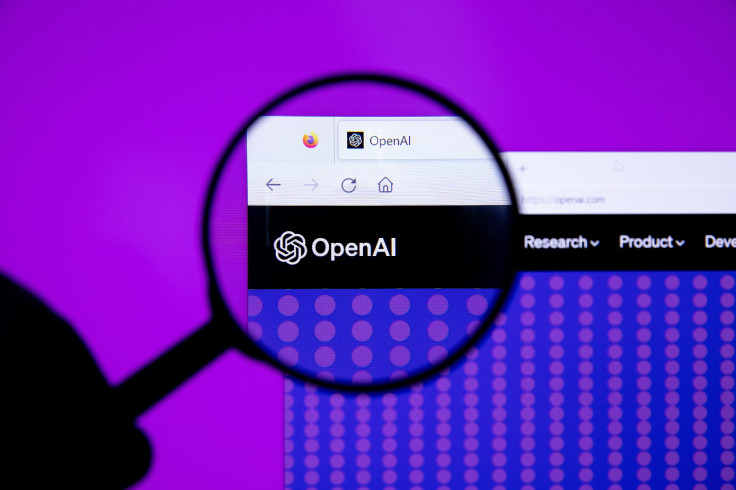Microsoft Exec Joins OpenAI Board Amidst Copyright Storm
Following the footsteps of The New York Times, nonfiction book authors have launched their own copyright claims against Microsoft and OpenAI.

OpenAI has announced a new board of directors, which includes Microsoft executive Dee Templeton. A person familiar with the matter told Bloomberg News that Templeton has already begun attending board meetings after assuming a nonvoting observer position on the OpenAI board.
This decision is reportedly part of a broader boardroom revamp. OpenAI, the company behind the widely popular AI bot ChatGPT, made headlines in November when CEO Sam Altman was briefly removed by the OpenAI board.
Although Altman says he was initially reluctant to rejoin the AI startup, he eventually agreed to resume his role as the company's chief executive. Notably, Microsoft played a key role in Altman's return to OpenAI.
After returning, Altman announced that Microsoft would take a non-voting, observer position on OpenAI's board.
"We clearly made the right choice to partner with Microsoft and I'm excited that our new board will include them as a non-voting observer," the top executive wrote in a blog post on OpenAI's official website.
As a result, Microsoft's representative can attend OpenAI's board meetings and will have access to confidential information. However, the Redmond-based tech giant doesn't have voting rights when it comes to electing or choosing directors.
OpenAI's new board of directors
The newly formed OpenAI board of directors includes former Treasury Secretary Larry Summers, former Salesforce co-CEO Bret Taylor, Quora CEO Adam D'Angelo and Mira Murati, who was briefly named interim CEO. Meanwhile, Greg Brockman has returned as OpenAI president.
Templeton has been with Microsoft for 25 years. "As an advisor to CTO and EVP of AI Kevin Scott, I oversee operations for the nearly 1,500 scientists and engineers comprising Microsoft's Technology & Research group," her LinkedIn profile reads.
With Microsoft being granted a non-voting, observer position on OpenAI's board, the Redmond-based tech giant will have greater influence while avoiding regulatory scrutiny. Microsoft's representative will also share relevant information with CEO Satya Nadella.
This could be a sign that a major shift in OpenAI's governance is on the horizon. According to some experts, the current situation is the best possible outcome given that moving OpenAI's staff into a different company could have led to a possible government intervention, as well as, costly and time-wasting litigation.
The troubles keep mounting for OpenAI and Microsoft
Following recent controversies, OpenAI and Microsoft are facing another legal challenge in the form of a class-action lawsuit filed by non-fiction book authors, who accuse the companies of stealing their copyrighted works to help "build a billion-dollar artificial intelligence system".
According to an NBC report, non-fiction authors Nicholas Basbanes and Nicholas Gage filed the lawsuit in the Manhattan federal court last week. Basbanes and Gage claim they represent a class of writers "whose copyrighted work has been systematically pilfered by" Microsoft and the AI company it is an investor in, OpenAI.
4⃣Microsoft and OpenAI are sued again over Copyright issue.
— TechPluto (@TechPluto) January 8, 2024
Non-fiction authors and journalist have filed fresh class action lawsuit against OpenAI and Microsoft over copyright infringement.
Barely a week ago both companies were sued by The New York Times. pic.twitter.com/5w8TZhxyAS
"They're no different than any other thief," the lawsuit alleged, further noting that it will include all people in the US who are authors or legally beneficial owners of copyrights for works that have or are being used by the two companies to "train their large language models".
According to the report, the lawsuit seeks damages of up to $150,000 (about £118,014) for each work that Microsoft and OpenAI have infringed. It is worth noting that Microsoft has previously passed the blame on the end user for using AI-powered tools like Copilot to infringe on copyrighted material.
The lawsuit points out that OpenAI's tools like ChatGPT are trained on "massive amounts of written material," which includes books written by Basbanes and Gage. Microsoft and OpenAI are still mum on the new lawsuit.
Meanwhile, the complaint suggests OpenAI "copied plaintiffs' works wholesale, without permission or consideration" and fed the copyrighted materials into large language models (LLMs).
This is similar to the allegations made against the two companies by The New York Times, which claims the companies' powerful AI models used millions of articles for training without permission.
© Copyright IBTimes 2025. All rights reserved.






















